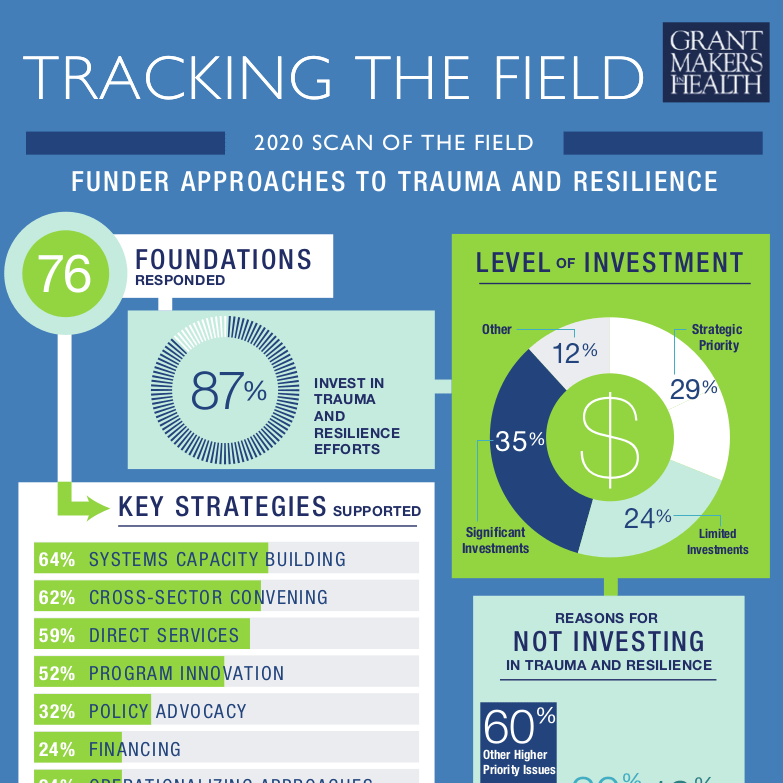Addressing the Mental Health Epidemic: Mindfulness, Healing, and Resiliency Strategies
This timely conversation dives into the current mental health landscape; highlights cost-effective, prevention-oriented programs; and shares insights on the future of mental health and roles for health funders.
Mental Health and Substance Use Funders Roundtable
This networking session offered an overview to connect and learn from other funders working in the Behavioral Health Funders Network and the Substance Use Funders Collaborative.
Care Partners: Bridging Families, Clinics, and Communities to Advance Late-Life Depression Care – Lessons Learned
On this webinar, participants joined GIH for an important conversation about the successes and challenges in implementing collaborative care interventions, the key lessons learned to date, and next steps to improve late-life depression care.
Philanthropy’s Role in Fostering Grantee Resilience and Managing Secondary Trauma
Leaders from the field released findings and recommendation for action from our recently concluded national research project on secondary trauma.
COVID-19, Drug Policy, and Racial Justice
Efforts to reduce reliance on the criminal justice system and instead increase access to community-based harm reduction, mental health, and substance use services are underway across the country. This webinar featured a discussion on federal, state, and local efforts to strengthen social safety nets and expand access to effective overdose prevention and harm reduction interventions.
When Two Public Health Crises Collide: COVID-19 and Gun Violence
During this webinar, participants learned more about the importance of addressing gun violence in the midst of a global pandemic and how we can ensure safe and healthy communities now and long after the virus runs its course.
Responding to Behavioral Health Needs During COVID-19
On this webinar, participants learned from behavioral health organizations on the frontlines and discussed how philanthropy can respond most effectively and equitably to the behavioral health needs of individuals, health care providers, and vulnerable populations.


